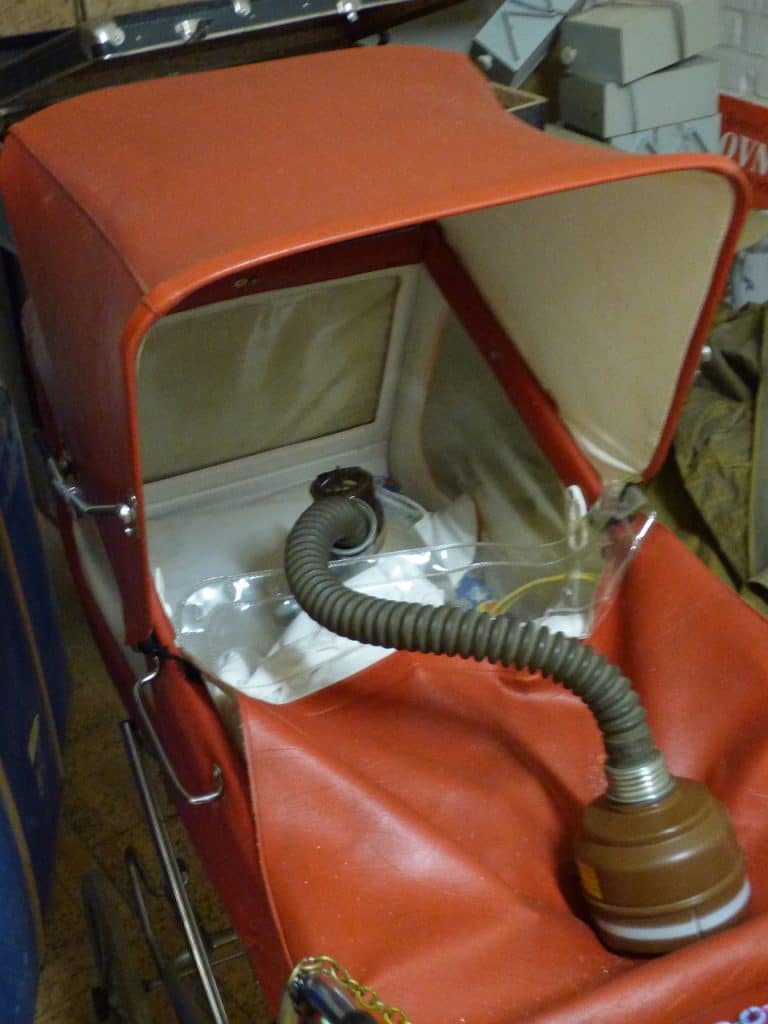If you have a gassy baby, you know how challenging it can be to soothe them for a good night’s sleep. The constant discomfort and irritability can leave both you and your little one feeling exhausted. But don’t worry, there are effective remedies that can help ease their discomfort and promote better sleep. From gentle massages to natural remedies, this article will provide you with simple and practical solutions that will help soothe your gassy baby and ensure a peaceful night of sleep for everyone involved.

This image is property of pixabay.com.
Understanding the Causes of Gas in Babies
Introduction to baby gas
Gas is a common issue that many babies experience, and it can often cause discomfort and distress. Understanding the causes of gas in babies is essential for parents to effectively address this problem. Gas in babies occurs when air gets trapped in their digestive system, leading to bloating, discomfort, and fussiness.
Common causes of gas in babies
There are several common causes of gas in babies that parents should be aware of. Firstly, swallowing air while feeding is a primary cause of gas. This can happen if the baby is not properly positioned during nursing or bottle feeding. Additionally, certain foods that breastfeeding mothers consume, such as dairy products or certain vegetables, can contribute to a baby’s gas. Finally, the immaturity of an infant’s digestive system can also lead to gas as it takes time for their bodies to adjust to processing food efficiently.
Understanding infant digestive system
Understanding the intricacies of an infant’s digestive system can provide insight into the causes of gas. Babies have an underdeveloped digestive system, and their intestines are still developing the necessary bacteria to aid digestion. This immaturity can make it challenging for babies to break down certain components of breast milk or formula, leading to increased gas formation. Additionally, the lower esophageal sphincter, which separates the stomach from the esophagus, is weaker in infants. This can cause stomach contents to flow back into the esophagus, causing discomfort and gas.
Symptoms of Gas in Babies
Identifying signs of gas in babies
Recognizing the signs of gas in babies is crucial for parents so they can determine the appropriate course of action. Common symptoms of gas in babies include excessive fussiness, crying, pulling of legs towards the abdomen, and a bloated abdomen. Some babies may also pass gas frequently or have difficulty sleeping due to the discomfort caused by gas. Identifying these signs early on can help parents address the issue and provide relief for their baby.
Differentiating between gas and colic
It is essential to differentiate between gas and colic as the treatment approaches may vary. While gas is characterized by excessive trapped air in the digestive system, colic refers to prolonged and intense crying episodes that often have no clear cause. Colicky babies may show symptoms of gas, such as fussiness and bloating, but the crying may persist for hours at a time. If the baby’s crying episodes are accompanied by other symptoms like vomiting or weight loss, it is recommended to consult a pediatrician for a proper diagnosis.
The importance of addressing gas in babies
Addressing gas in babies is crucial for both the comfort of the baby and the well-being of parents. Gas can cause significant discomfort and distress for babies, leading to excessive crying and difficulty sleeping. This, in turn, can also take a toll on the mental and physical health of parents, causing stress and fatigue. By understanding and addressing the causes of gas, parents can help soothe their baby, promote better sleep, and create a more harmonious environment for the whole family.
Effective Feeding Techniques to Reduce Gas
Positioning during nursing or bottle feeding
Proper positioning during nursing or bottle feeding can significantly reduce the chances of babies swallowing excess air and experiencing gas. For breastfeeding, ensuring a comfortable latch and positioning the baby in a slightly upright position can help prevent excessive air intake. When bottle feeding, using angled bottles and holding the bottle in a way that allows the milk to fill the nipple completely can reduce the amount of air the baby ingests.
Burping techniques to release trapped gas
Burping is an essential technique that can release trapped gas and provide relief for babies. After each feeding, gently patting or rubbing your baby’s back can help bring up any air trapped in their stomach. There are different burping techniques, such as the over-the-shoulder method or sitting your baby upright and supporting their chin, so you can experiment and find what works best for your little one.
Choosing the right formula for your baby
If you are formula-feeding your baby, it is important to choose the right formula that suits their needs and reduces the chances of gas. Some formulas are specifically designed to be easier on a baby’s digestive system and can help alleviate gas. Consulting with your pediatrician can provide guidance in selecting the appropriate formula based on your baby’s individual needs.
Home Remedies to Relieve Gas in Babies
Gentle tummy massages to promote digestion
Gentle tummy massages can help promote digestion and provide relief for gassy babies. Using circular motions with your fingertips, massage your baby’s abdomen in a clockwise direction. This can help stimulate the digestive muscles and encourage the movement of gas through the intestinal tract. Remember to apply gentle pressure and always be responsive to your baby’s cues during the massage.
Using warm compresses to alleviate discomfort
Applying a warm compress to your baby’s tummy can help alleviate discomfort caused by gas. Take a clean washcloth and soak it in warm water, wringing out any excess moisture. Place the warm compress on your baby’s abdomen and gently massage in circular motions. The warmth can help relax the muscles in the digestive system, providing soothing relief.
Infant yoga poses to relieve gas
Infant yoga poses can also be beneficial in relieving gas in babies. Gently and safely move your baby’s legs in a bicycle-like motion, imitating the pedaling movement. This can help stimulate the digestive system and encourage the release of trapped gas. Additionally, bringing your baby’s knees to their chest and holding the position for a few seconds can help alleviate discomfort and promote gas expulsion.

This image is property of pixabay.com.
Dietary Changes for Breastfeeding Moms
Identifying food triggers in mother’s diet
Breastfeeding moms can make dietary changes to help reduce the chances of their baby experiencing gas. Identifying food triggers in the mother’s diet is essential. Certain foods, such as dairy products, cruciferous vegetables (like broccoli or cauliflower), or foods high in caffeine, can cause gas in some babies. It is recommended to keep a food diary and monitor how your baby reacts after you consume certain foods to identify potential triggers.
Eliminating gas-inducing foods from the mother’s diet
Once potential triggers have been identified, eliminating gas-inducing foods from the mother’s diet can provide relief for the baby. Gradually removing these foods from your meals and observing your baby’s gas symptoms can help determine the effectiveness of the dietary changes. Consulting with a lactation consultant or a healthcare provider can also provide guidance and support during this dietary adjustment period.
Boosting breastfeeding techniques
Improving breastfeeding techniques can also play a significant role in reducing gas in babies. Ensuring a proper latch, offering frequent but smaller feeds, and allowing the baby to fully empty one breast before offering the other can help prevent excessive air intake. Offering plenty of skin-to-skin contact and breastfeeding in a calm, relaxed environment can also promote better digestion and minimize gas.
Over-the-Counter and Prescription Medications
Simethicone drops for gas relief
Simethicone drops are a common over-the-counter option for providing gas relief in babies. These drops work by breaking down gas bubbles in the stomach, making it easier for the baby to pass gas. It is important to follow the recommended dosage provided by your pediatrician or the product packaging. Simethicone drops are generally safe to use, but consulting with a healthcare professional is advisable before introducing any new medication to your baby.
Probiotics to improve gut health
Probiotics can be beneficial in improving gut health and reducing gas in babies. These live bacteria and yeasts are commonly found in certain yogurts or can be taken as supplements. Probiotics can help restore the balance of good bacteria in the digestive system, thereby aiding digestion and reducing gas. Consulting with a pediatrician can help determine the appropriate probiotic option and dosage for your baby.
Consulting a pediatrician for prescribed medications
In some cases, gas in babies may be persistent or severe, requiring prescribed medications. If home remedies and over-the-counter options have not provided sufficient relief, consulting with a pediatrician is recommended. Pediatricians may prescribe medications like antispasmodics or acid-suppressing medications to address underlying issues causing excessive gas. It is essential to follow the prescribed dosage and consult with your healthcare provider for any concerns or questions.

This image is property of pixabay.com.
Using Gas Relief Products
Baby gas drops for instant relief
Baby gas drops are a popular gas relief product that many parents find helpful in providing instant relief for their babies. These drops typically contain simethicone, which helps break down gas bubbles in the digestive system. Following the recommended dosage, administering the drops before or after feedings can help relieve gas discomfort in babies. Always consult with your pediatrician before introducing any gas relief product to your baby.
Infant gas relief tools like bicycle legs
In addition to gas drops, there are other infant gas relief tools that parents can try, such as the bicycle legs technique. Gently moving your baby’s legs in a cycling motion can stimulate the digestive system and facilitate the release of gas. This can be done while holding your baby on their back and moving their legs alternatively, imitating a cycling motion. Experimenting with different techniques and finding what works best for your baby can provide effective gas relief.
Safety precautions while using gas relief products
When using gas relief products, it is important to prioritize safety and follow the recommended guidelines. Always consult with your pediatrician before introducing any new product to your baby. Ensure that the product is age-appropriate and follow the recommended dosage. Additionally, monitor your baby for any adverse reactions or changes in behavior. If you notice any concerning symptoms, discontinue the use of the product and seek medical advice.
Calming Techniques for Gassy Babies
Swaddling to provide comfort
Swaddling can provide comfort for gassy babies and help alleviate their discomfort. Wrapping your baby snugly in a lightweight blanket can mimic the feeling of security they experienced in the womb. This can help soothe them and provide relief from gas-related discomfort. Ensure that the swaddle is not too tight and always place your baby in a safe sleeping position.
Utilizing white noise and soothing sounds
White noise and soothing sounds can be used to calm gassy babies and promote better sleep. The gentle hum of a white noise machine or the soft sounds of nature can create a soothing environment for your little one. These sounds can help distract the baby from their gas discomfort and provide a sense of comfort and security as they drift off to sleep.
Creating a calm and relaxing sleep environment
Creating a calm and relaxing sleep environment is essential for gassy babies to promote better sleep. Keep the room dark, quiet, and at a comfortable temperature. Use blackout curtains to minimize external distractions, and consider using a sleep sack or swaddle to provide a cozy and secure sleep environment. By creating a peaceful atmosphere, you can help your baby relax and alleviate any gas-related discomfort.
Natural Remedies for Gas Relief
Chamomile tea to ease stomach discomfort
Chamomile tea has been used for centuries to alleviate stomach discomfort and promote relaxation. For breastfeeding moms, drinking chamomile tea can help reduce gas-inducing foods and potentially soothe their baby’s digestive system. Be sure to consult with a healthcare provider before consuming any herbal tea, especially if you are breastfeeding, to ensure it is safe for you and your baby.
Harmonious scents and essential oils
Certain scents and essential oils can have calming effects and may help relax gassy babies. Lavender, chamomile, and vanilla scents are known for their soothing properties and can be used in the form of diffusers, sprays, or as natural oils. However, it is essential to use these products with caution and ensure that the scents are not overwhelming or irritating to your baby’s sensitive respiratory system.
Limiting exposure to environmental pollutants
Reducing exposure to environmental pollutants can contribute to a healthier and more comfortable environment for gassy babies. Avoid using harsh cleaning products or strong fragrances that can irritate their respiratory system. Opt for natural, hypoallergenic cleaning products and ensure that the air quality in your home is clean and well-ventilated. By creating a clean and toxin-free environment, you can help minimize potential irritants that may exacerbate gas discomfort.
When to Consult a Pediatrician
Persistent and severe gas problems
While gas is a common occurrence in babies, persistent and severe gas problems may require medical attention. If your baby’s gas symptoms persist or worsen despite using home remedies and making dietary adjustments, it is advisable to consult a pediatrician. They can assess your baby’s overall health, rule out any underlying medical conditions, and provide appropriate guidance and treatment options.
Unusual symptoms accompanying gas
If your baby experiences unusual or concerning symptoms alongside their gas, it is essential to seek medical advice. Symptoms such as significant weight loss, vomiting, excessive diarrhea, blood in stool, or high fever may indicate an underlying condition that requires immediate attention. Recognizing and addressing these unusual symptoms can help ensure the well-being of your baby.
Seeking medical advice for your baby’s gas
If you are unsure about your baby’s gas symptoms or have any concerns, seeking medical advice is always a good idea. Pediatricians are trained to assess and diagnose any potential issues and provide appropriate guidance and support. Whether it’s addressing persistent gas problems or managing unusual symptoms, consulting a healthcare professional can provide peace of mind and ensure your baby receives the necessary care.
In conclusion, understanding the causes of gas in babies is key to addressing this common issue. By implementing effective feeding techniques, exploring home remedies, making dietary changes, and utilizing appropriate gas relief products, parents can help soothe their gassy babies. Additionally, incorporating calming techniques, considering natural remedies, and seeking medical advice when necessary can make a significant difference in providing relief and promoting better sleep for both babies and parents. Remember, every baby is unique, so it may take some trial and error to find the most effective remedies for your little one.








